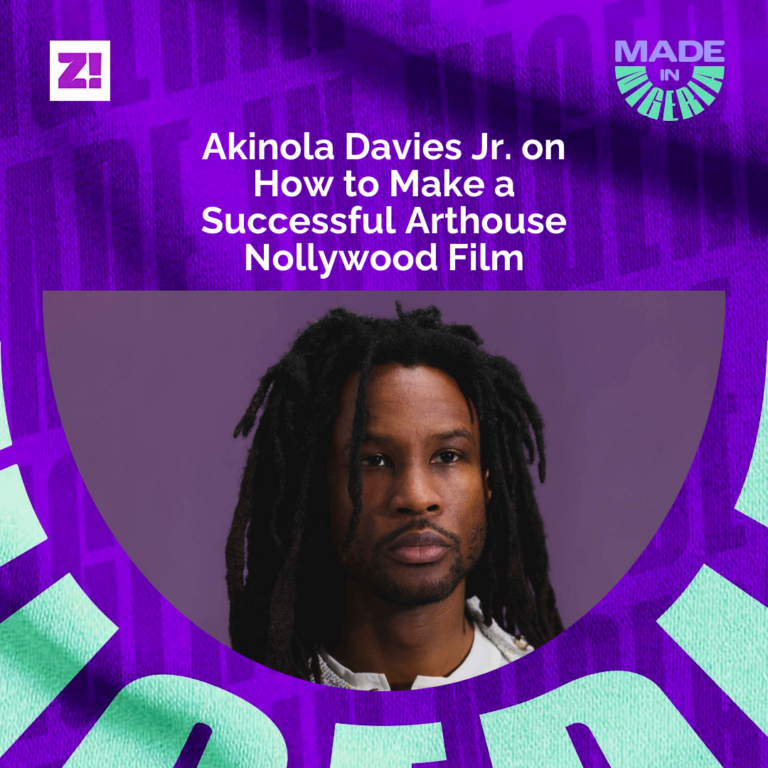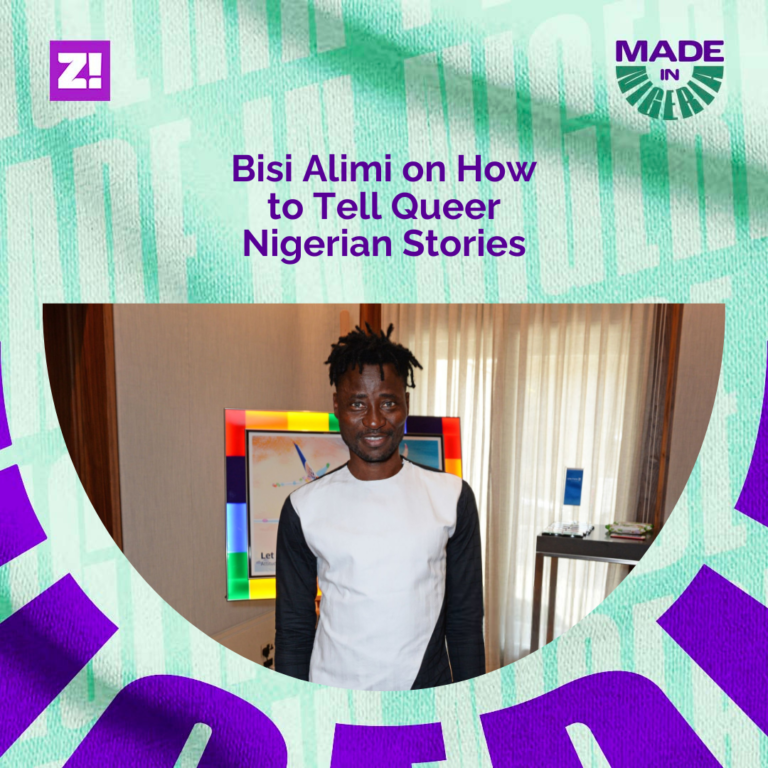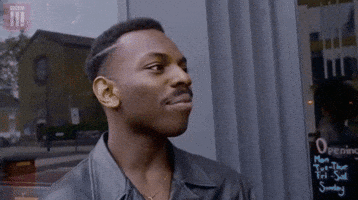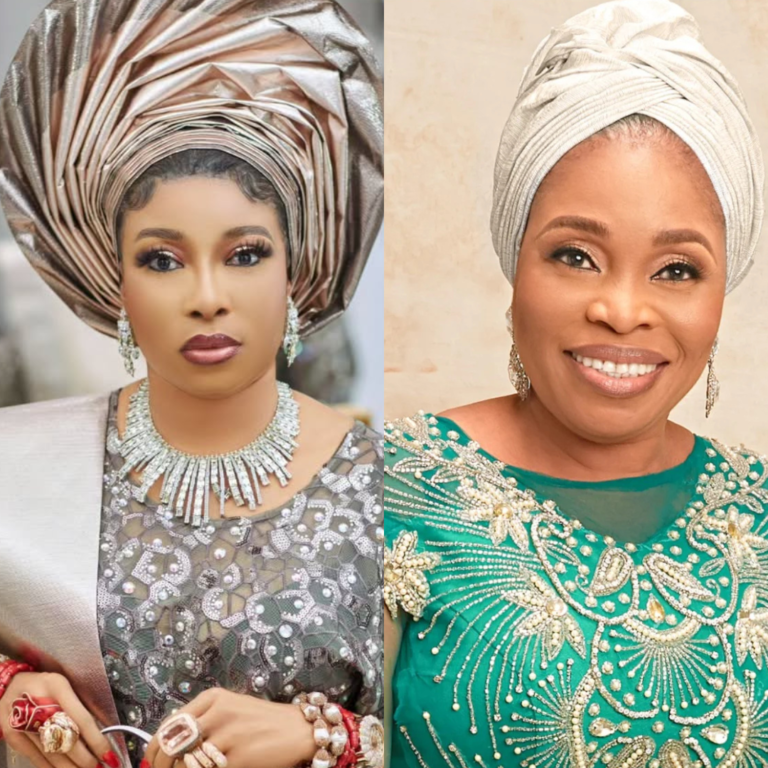In Nigeria’s guerrilla literary scene, Nnamdi Ehirim has managed to break through the noise. His debut novel, published in 2019, established him as a writer with the potential for remarkable global success. The book was reviewed in The New York Times, and he spoke at the Hay Festival and the South Asian Journalists Association (SAJA) Book Festival.
Now, he returns with his second book, The Brevity of Beautiful Things, which explores modern relationships, childhood trauma, and the complexities of identity in an era of constant debates on sex and sexuality. His characters navigate polyamory, homosexuality, and various identities across “the spectrum.”
In this week’s #MadeinNigeria, he reflects on what it truly means to be a “writer’s writer,” the culture of excusing bad behaviour, and whether Nigerian authors are catering to a Western gaze.
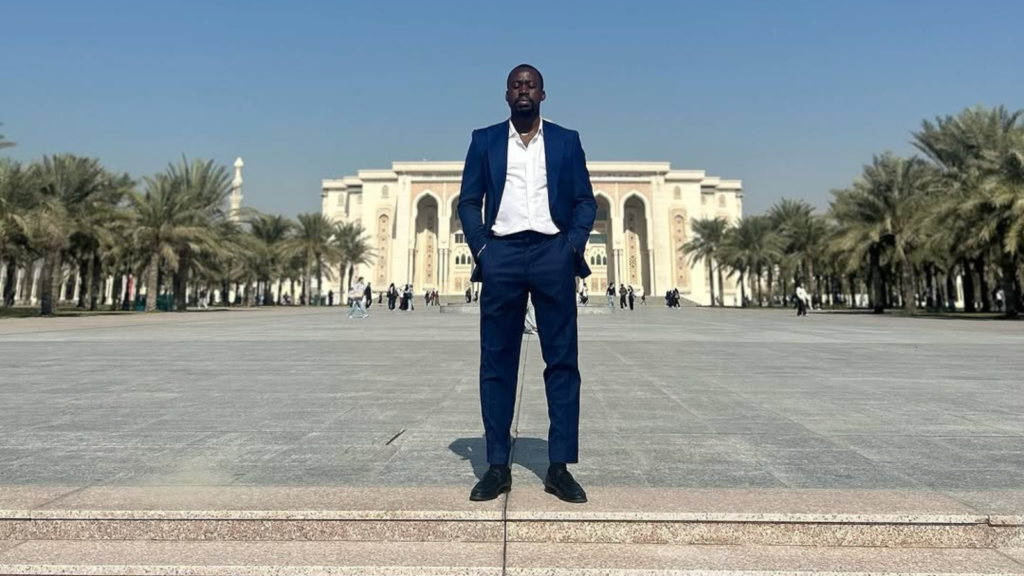
This interview has been edited for clarity and length.
What was the inspiration behind your latest book The Brevity of Beautiful Things?
I hadn’t done a lot of writing in a while. I wrote my first book, Prince of Monkeys, then I went to do an MBA, started a business, and during that period, I didn’t write a lot of fiction. I had done a couple of essays, but not much in terms of fiction.
I started writing The Brevity of Beautiful Things sometime in early 2020. Two things happened around that time—one, I had just gotten out of a relationship, and two, there were the COVID lockdowns. I was also transitioning between jobs, so I had a lot of time on my hands. I was living with my brother and two friends I went to school with, so a lot of my thoughts revolved around relationships—not just romantic ones, but close human relationships and friendships.
The very first title I had in mind was The Human Condition because that was where my head was at. I wanted to explore every dynamic of personal relationships—friendship, love, what makes these bonds and what breaks them. That’s why, in the book, I touch on different kinds of relationships: male-female friendships, male-female romance, same-gender friendships, same-gender romance, and group dynamics.
As I developed the story, I started thinking about the things that connect people in these relationships—the experiences and emotions that serve as bridges. That idea inspired the second working title, Bridges. What are the things that connect us in our communities of friends?
I also wanted to explore how family backgrounds—whether positive or traumatic—shape the way people navigate relationships. For example, in the story of Kamara and Julius, they’ve gone in different directions in life, but there’s still a deep sense of loyalty based on their shared past. I wanted to explore that, as well as themes like betrayal and heartbreak in both friendships and romance.
In “Plastic Flowers Bloom Forever,” I explored the experience of someone who feels left behind while all his friends seem to be progressing. He feels disconnected from the people who were once his closest companions.
I’ve received a lot of feedback about the book, including comments from some readers who perceive it as highly sexual. That’s a fair interpretation, but I think it’s also a bit reductive. The book isn’t just about sexual expression—it’s about relationships in all their complexities.
Reading the book I found it very jarringly sexual as well. But I think themes of open relations, which you explore in the book are becoming common among young people.
This is why I was saying that I don’t think it’s something any young reader would find unfamiliar. It’s not far removed from the type of content you’d see on the average person’s Twitter timeline, Instagram feed, or even on Joro’s blog. It’s very much a part of the culture.
For me, it was important to write something that felt exploratory, and to some degree, authentic.
Maybe not to the point that you have sex with someone else hours after your fiance proposes and defend that with “We have an open relationship.”
That’s not far from the kind of things we read on Zikoko. I mean, I see things like this every week.
I feel like it’s peak douchebag behaviour, and she presents it like, “Oh well, you know me, you know the agreements we have.” But regardless of the agreements, doing this is just… I don’t know; it’s just messed up.
So yeah, not a fan of Ufedo?
I’m not a fan because she’s a horrible woman.
But speaking to that, I think it was very important for me to have morally grey people in the book. I wanted to be honest about that. I think the way a lot of us move in the world today, there are very few people who are absolutely good. A lot of us do messed up things, and we do our best to justify them. In many ways, we convince ourselves, rationalize it, and then try to sell that reasoning to other people.
And I think every character in the book has a bit of that. They did a lot of messed up things, but they also really believed their own bullshit.
Take Murtala, for example—he stole someone’s exam script and had absolutely no remorse. Or Iman, in her own way, with Kamara. Everyone believed they had the right incentives or some level of internal justification, but they still did terrible things at different points.
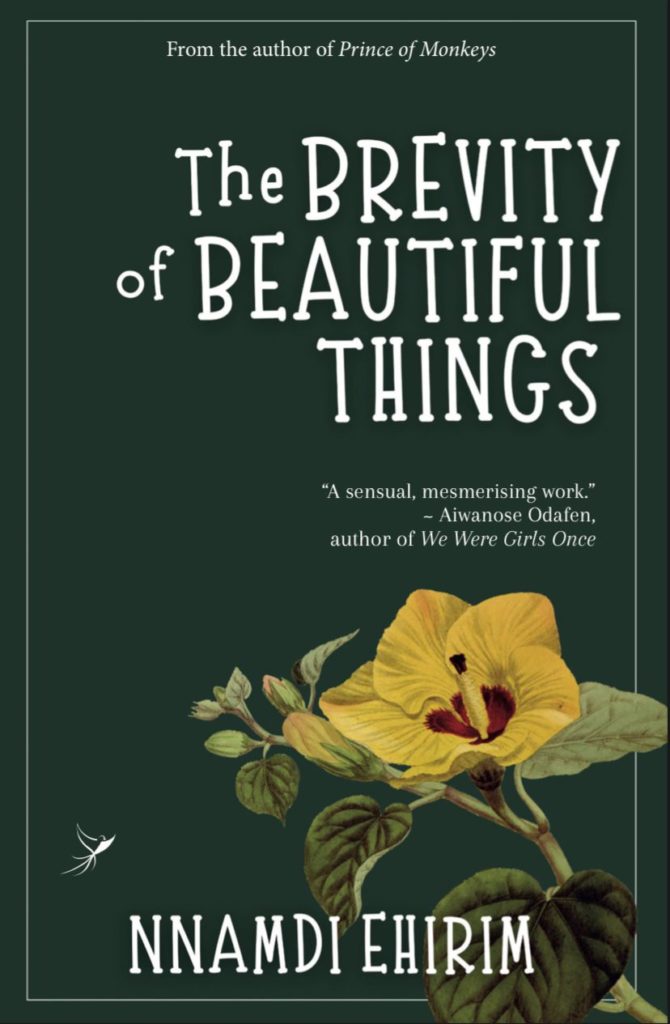
I also think that bad behaviour is being defended more so lately. People show up just awful and they say it’s not caring about likeability.
I’d agree with that. And I think it’s something we can actually test. I also think there’s truth to the idea that morality isn’t absolute—there are no fixed “north stars.” People will justify and stand by almost anything if they believe the incentives are right. It would actually be really interesting to run a poll for readers, to see where they stand on the characters’ moral choices and just how divided the opinions are.
Does morality not being an absolute justify the defence of the bad character we see?
I don’t think it justifies anything.
I think it’s a fair argument but not a justifying one.
Something that’s really important to me—and something I tried to show in the book through multiple perspectives—is that just because someone has an internal justification for their actions doesn’t mean those actions don’t have real consequences on other people’s lives. That’s why I wrote certain events from different viewpoints—to show how the same moment can affect people in vastly different ways.
When I say “fair arguments,” I mean ones that, if you tell 10 people without full context, they might say, “Oh yeah, that makes sense.” But that doesn’t mean those actions are justified or without consequence.
For me, it’s like this—you have the freedom to swing your arms however you want. But the moment you hit someone in the eye or step on someone’s shoe, it stops being just about you. It becomes a moral or ethical issue.
How do you balance full-time work in finance and being a writer?
For me, storytelling is always in motion. Even when I’m not actively writing, I’m constantly thinking about stories, building characters in my head, taking notes, and reading things that spark new ideas. But I only do extensive writing when I have a long break.
I wrote most of my first book during my final year of undergrad and my NYSC year. You know how NYSC is—you do some work, but there’s also a lot of downtime in the office. I used that time to write.
With my second book, I did a lot of the writing during COVID when everything slowed down because of the lockdowns.
Right now, I’m already thinking through a third book. But even though the ideas are forming, I probably won’t do any serious writing until I can carve out about six months with minimal distractions. That’s when I can really focus and get into it.
ALSO READ: Daniel Oriahi on the Next Phase of Nollywood
Can one be financially successful as a full-time writer?
It depends—especially when it comes to novels.
I don’t think we’re at a point where most novelists can afford to write full-time. Screenwriters, on the other hand, might have a better shot if they land the right projects. But with novels? Not really.
If you look at most big African writers, very few of them write full-time. Even Chimamanda Ngozi Adichie, whose stardom has gone beyond literature, isn’t solely living off her books. She hasn’t published a novel in over a decade and is still thriving because her career has expanded beyond writing.
Most novelists do something else alongside writing. Some, like Sefi Atta and Niq Mhlongo, teach. Others, like Helon Habila, also teach. Some work in PR, marketing, or other creative fields that complement their writing.
Honestly, being a full-time writer is a luxury anywhere in the world. I went into this knowing that, which is why, as much as I want to be a successful writer, I also want to be a successful finance bro. Both are important to me. No matter how much success I find in writing, I don’t see myself leaving finance behind—and vice versa.
What does it mean to be a successful writer?
For me, the definition of a successful writer varies from person to person, but my personal yardstick comes down to two key things: cultural impact and critical acclaim.
First, I believe that a successful writer is someone who, to some degree, defines and shapes culture. If you’re serious about being an artist, you need to not only capture what’s happening in culture but also move the needle—shifting conversations and perceptions in meaningful ways. Look at what Chimamanda has done with her literature, or more recently, how writers like Akwaeke Emezi and Eloghosa Osunde have carved out space for stories that weren’t as represented before. They’ve taken those narratives to new heights and influenced the way those stories are told. That’s the kind of impact I strive for in my work.
Second, because I’m both a reader’s reader and a writer’s writer, critical acclaim is just as important to me. It’s not enough to have the bestselling book in Nigeria if my work isn’t being recognized by the institutions that matter. And when I say institutions, I don’t just mean global recognition—I want to be deeply embedded in local literary spaces too. I want my books to be a staple at Nigerian festivals and book clubs. I want local publications to engage with my work seriously and thoughtfully. And then, of course, I want that recognition to extend internationally as well.
So, for me, those are the two yardsticks for success: cultural relevance and critical acclaim.
What does it mean to be a writer’s writer?
For me, a “writer’s writer” and a “reader’s reader” are essentially the same thing—it’s someone who is in it for the love of the craft.
I enjoy writing and storytelling down to the smallest details. I care about things like sentence construction, rhythm, and flow, regardless of the subject matter. Even when I’m sending out emails at work, I’m not just trying to communicate—I’m crafting. If you catch me on the right day, I might even slip in some alliteration just for the fun of it. That’s how deeply invested I am in the mechanics of writing.
Beyond that, character development is something I take seriously, and I approach all genres with the same level of appreciation. As long as a story is well-told and well-written, I’m fully in. I engage with writing as a nerd, and that’s why I consider myself both a writer’s writer and a reader’s reader.
Just yesterday, the best thing I read was Ifeoma Nwobu’s piece in response to a TechCabal story. That kind of writing—sharp, insightful, and well-executed—is what excites me. “I get your argument. I agree with some points, disagree with others, but honestly, putting all that aside—these are really, really well-crafted sentences.” From a literary standpoint, I genuinely fuck with it.
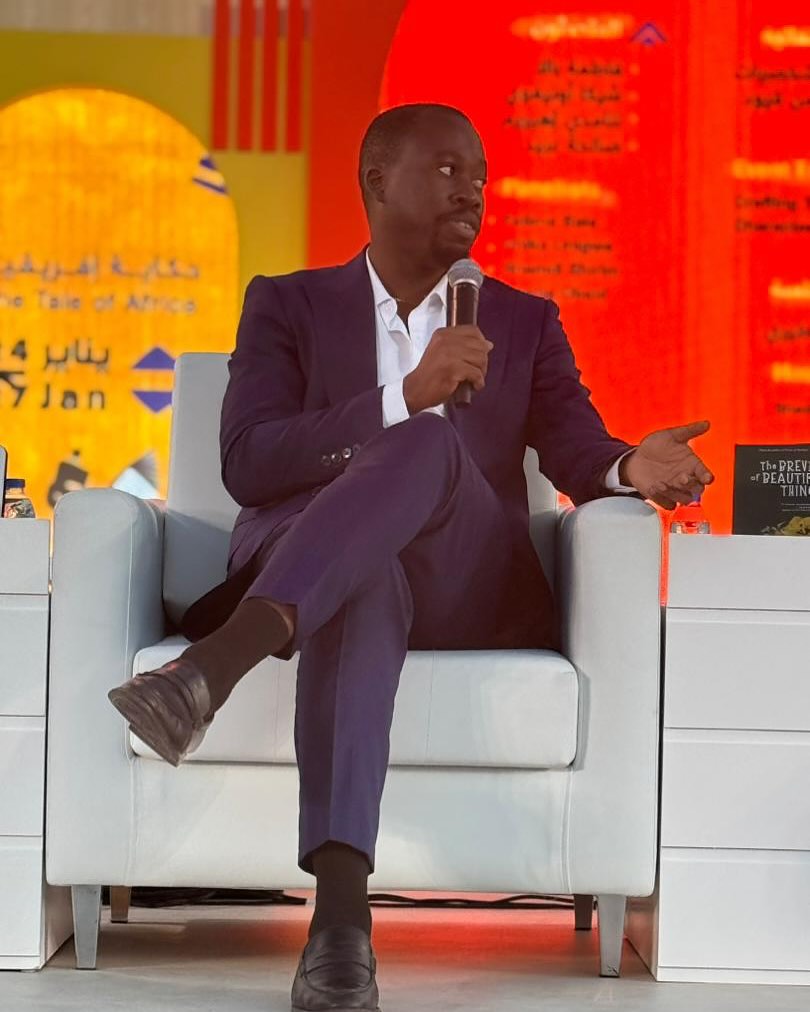
There have been debates about Nigerian writers telling stories for a Western gaze. Where do you stand in that debate?
I wouldn’t say that I agree that people are writing for the “Western gaze.” If you’re posting something on Instagram or TikTok, you’re aware that we live in a more globalized world. People have global lives, and by default, we have global audiences.
If people are conscious of that in the art they create, I don’t think it’s far-fetched. Some will be more sensitive to it than others, and that’s fair. If someone is Nigerian but has lived in Nigeria for only 10 years and spent the next 20 in three other countries, they’re naturally going to have a broader audience in mind. That’s just their reality.
I think there are a good number of Nigerians with global perspectives, and their narratives are valid. Some of their takes on Africa and Nigeria might be warped, but those perspectives still exist. For me, the only time I draw the line is when someone insists that their interpretation is the ultimate truth.
For example, if Tomi Adeyemi claimed her depiction of Nigeria was historically and anthropologically accurate—that it wasn’t fantasy but based on actual Yoruba traditions—I’d call bullshit. But if she says, “I took creative license, I pulled from different sources to create something new,” that’s fair. Nigerians might not connect with it the same way white audiences do, but that’s still fair play.
But in general, things like this don’t bother me because I know there’s a ton of solid Nigerian storytelling out there.
Your first book, Prince of Monkeys, gained considerable traction in the US. How did that affect its sales performance?
There wasn’t a huge marketing budget. I didn’t go to the US to tour or promote it, but a few publications reviewed it. The New York Times review, for instance, happened organically. It wasn’t my publisher who sent it to them. A reader wrote a review and pitched it to The New York Times, and they published it. That was his first time getting published by The New York Times as well, so it was organic on every level.
Did that review impact book sales?
Absolutely. Once the review was published, the needle shifted. I got invited to festivals like the Hay Festival (Spanish edition) and the SAJA Book Festival, which is the biggest book festival in Asia. The organizers read the New York Times review, bought the book, and decided to invite me. That kind of exposure drives sales.
It did translate into a number of book sales. People buy books simply because they see them featured in The New York Times. Libraries in the US, which have a big book-buying culture, also stocked it because of that recognition.
How did the book perform in Nigeria?
Interestingly, the book was published in the US before it was published in Nigeria. The e-book also came out earlier. Even before its official release in Nigeria, people were telling me, “Oh, I saw your book on my friend’s hard drive” or “I got it from a WhatsApp group.” There was a fair amount of piracy.
Piracy aside, I’ve probably sold more copies internationally, especially in the US, than in Nigeria. Given how little active marketing was done, I think a major reason for its success was the organic buzz from publications and festivals.
How did you find a publisher?
I was submitting my manuscript to publishers and agents for about two years with no luck. Then, Catapult magazine existed at the time, and I published a short story there. That story did well online, and I was chatting with the editor I had worked with. I mentioned that I had a manuscript sitting in my drafts for the last two years. He asked to see it, so I sent it over, and that’s how it got picked up.
The publisher that eventually published my book was owned by the same group that owned Catapult magazine.
Where do you see yourself in five years?
In five years, I’ll definitely have a third book out. I think this current book is just picking up momentum. It’s an interesting book culturally, especially in how it discusses relationship dynamics. But I believe the third book will be even bigger.
I want to explore how money—and the lack of it—shapes and binds relationships within a small nuclear family dynamic. So, bullet-pointing it:
- There will be a third book.
- It will be both a commercial and cultural success.
- I will still be working in finance.
Beyond that, I think writers don’t push the cultural needle as much as they could. Musicians and actors actively shape culture beyond their work, but writers tend to just publish their books and disappear until the next one comes out.
Aside from writing and publishing, I want to explore other ways I can engage with media, use influence, and storytelling to shape culture. That’s an interesting experiment I want to pursue over the next five years.
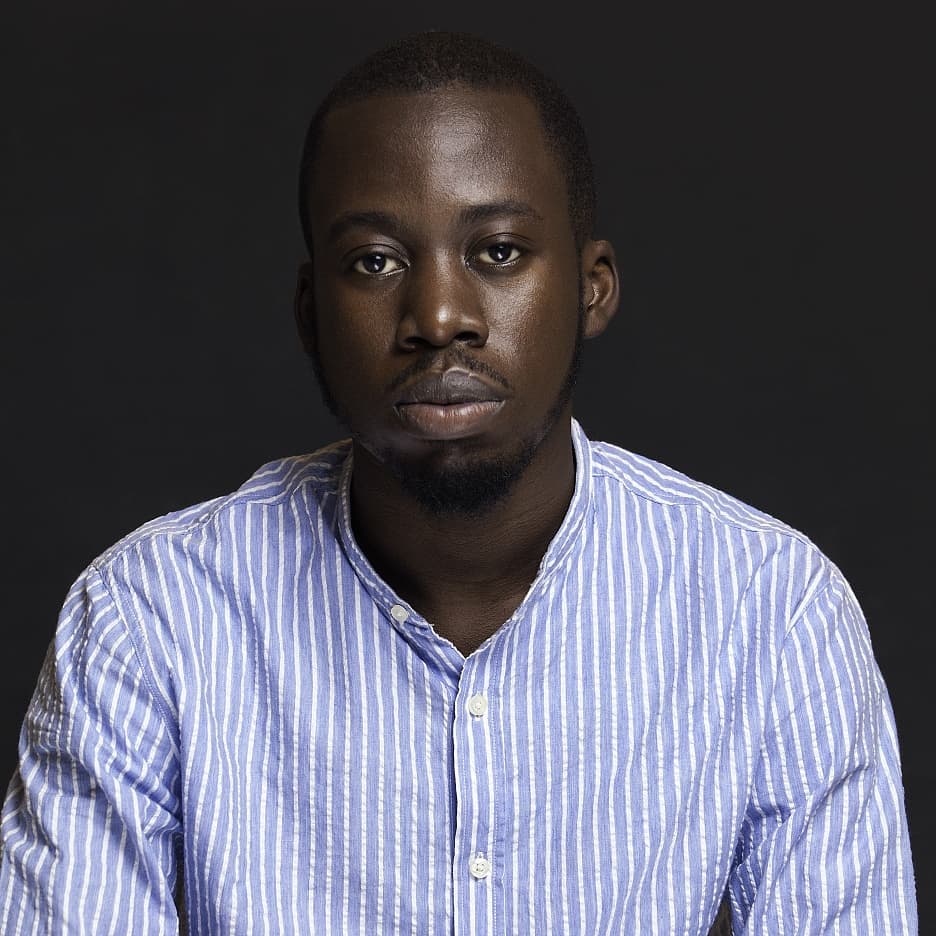
What are you currently reading?
I’m reading three books at once.
1. The Most Secret Memory of Men by a Senegalese author, Mohamed Mbougar Sarr. It was originally written in French and later translated to English. Considering how good it is, I’m surprised it’s not getting more local press.
2. Literary Theory in Depth by Colin John Holcombe—I didn’t study literature in school, so I’m trying to figure things out.
3. Death of the Author by Nnedi Okorafor.

